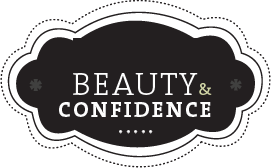Testing Cosmetics on Animals

Cosmetic companies have been testing their products on animals for decades, using animals such as mice, rats, rabbits, and guinea pigs to determine the safety and effectiveness of their products. However, animal testing is a controversial practice that has come under scrutiny in recent years, as many people believe that it is cruel and unnecessary.
The main argument against animal testing is that it is cruel and inhumane. Animals used in testing are subjected to a wide range of procedures, including skin and eye irritation tests, lethal dose tests, and even force-feeding studies. These procedures can cause significant pain and suffering to the animals involved, and many of them ultimately die as a result of the testing. And, animal testing is not always an accurate way to determine the safety of a product for human use. Different species can react differently to the same substance, and results from animal testing may not always be applicable to humans. In addition, advancements in technology have provided alternative methods for testing cosmetics safety, such as in-vitro methods and computer-modeling, which don't require the use of live animals.
The use of animal testing for cosmetics is banned in some countries such as the European Union, India, and Israel. However, in the US and other countries, the use of animal testing is still allowed, and many companies continue to use it to ensure the safety of their products. Many consumers are unaware of which companies still test on animals and which do not. Some of the largest cosmetics companies in the world, including L'Oreal, Procter & Gamble, and Estée Lauder, still test on animals. On the other hand, there are some companies like the Body Shop and Urban Decay that have made a commitment to not test on animals.
Consumers can make a difference by supporting companies that do not test on animals by boycotting those that do. Many companies have begun to change their testing policies in response to consumer demand, and by choosing not to buy products from companies that test on animals, consumers can encourage more companies to make the same switch. Furthermore, consumers can also look for programs like the Leaping Bunny certification, which is a certification program that verifies a company's commitment to not using animals for testing.
Animal testing for cosmetics is a controversial practice that has come under scrutiny in recent years. It is cruel and inhumane, and often not an accurate way to determine the safety of a product for human use. Alternatives to animal testing are available, and many companies have made a commitment to not test on animals. Consumers can make a difference by supporting companies that do not test on animals and by boycotting those that do. By making informed choices, we can encourage more companies to adopt ethical testing practices and ultimately end the use of animal testing in the cosmetics industry.

